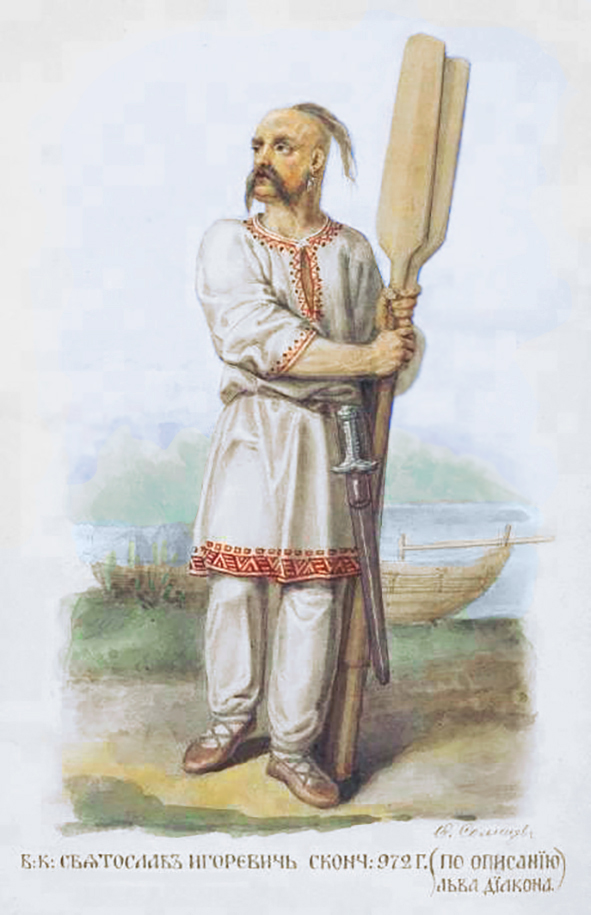Russian-Ukrainian insults: history and current events
Beards and hairstyles at the centre of a centuries-old opposition

Nineteenth-century depiction of Prince Svyatoslav of Kyiv (10th century) in Cossack clothing and headdress; note the oseledets, the long moustache and the absence of a beard. - Wikimedia Commons.
The conflict between Ukraine and Russia has been in the global spotlight for years. It is a clash with roots stretching back centuries, manifesting itself in ways that go beyond the military sphere. Centuries of ethnic, cultural, and linguistic tensions have inevitably left their mark on the languages of the two peoples, giving rise to insults tied to stereotypes and opposing identities. Two terms stand out for their symbolic weight: katsap in Ukrainian and khokhol in Russian.
Katsap is a Ukrainian derogatory term directed at Russians. Its origin is debated, but every etymological theory connects it to the word “goat” (tsap in Ukrainian), an animal associated with stubbornness and roughness. According to one theory, the term comes from the Tatar qasaq sap (“goat’s beard”); another suggests it is a contraction of kak tsap (“like a goat”). In either case, it is a derogatory reference to the thick traditional beards of peasants and soldiers, first Muscovite and later Russian. By the 19th century, when the Tsars sought to suppress Ukrainian language and culture, katsap was widely used among Ukrainian nationalists to label Russians as backward oppressors.
On the other side, khokhol is the quintessential Russian insult for Ukrainians. The word is synonymous with oseledets, the traditional hairstyle of Ukrainian Cossacks: a shaved head with a long lock or braid on top, often paired with long mustaches and no beard (the opposite of Muscovite style). For Russians, that tuft became a symbol of provincialism and rusticity. Calling a Ukrainian khokhol reduced him to a folkloric caricature, denying him a modern national identity. During the Soviet period, the term persisted in colloquial use, often with paternalistic undertones: the Ukrainian as the “younger brother,” naïve and unsophisticated.
Both terms work as mirror images: each people projects onto the other a negative stereotype rooted in historical episodes, wars, uprisings, repressions, but simplified and passed down through generations.
Interestingly, in informal contexts or among friends, some Ukrainians and Russians have occasionally reappropriated these words in a joking or self-ironic way, temporarily stripping them of their offensive charge. This reclaiming of an insult by the targeted community represents a form of cultural resistance.
Y. Hrytsak, Ukraine: The Forging of a Nation, London, Sphere, 2023.
05/03/2026
Salvatore Ciccarello